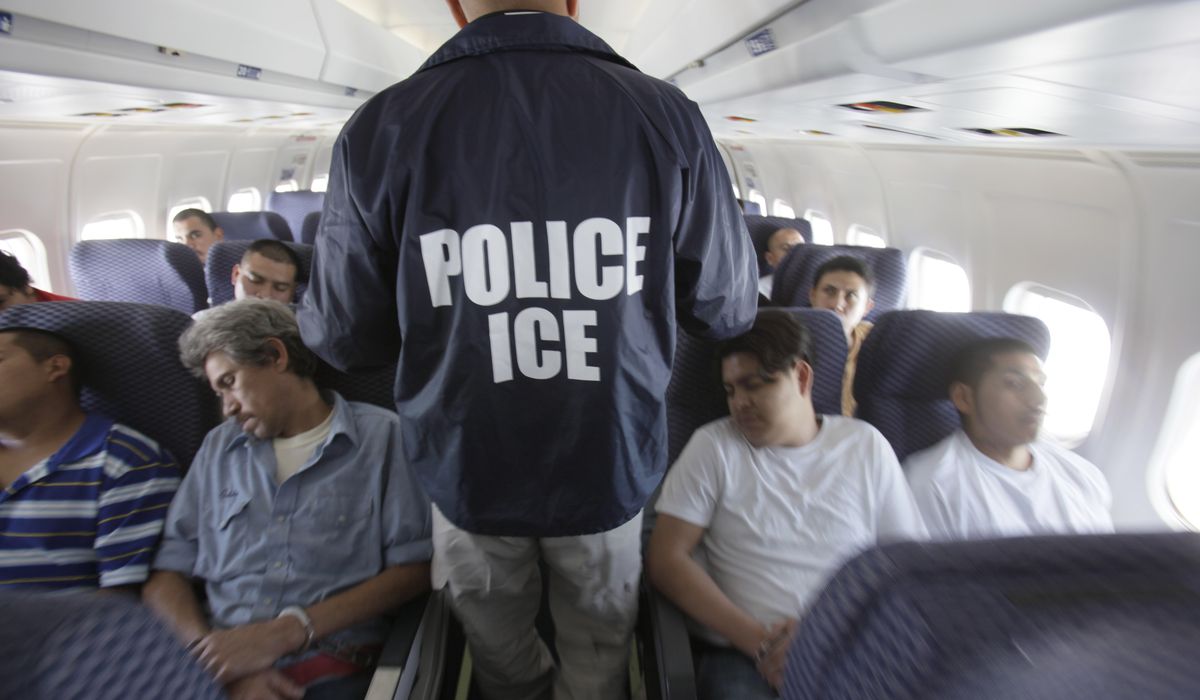
Homeland Security officials said the first expedited removal flights of illegal immigrant families back to Central America took off Friday under a new initiative to stem the border surge, braving criticism from immigrant-rights activists who called the move “appalling.”
The flights went to El Salvador, Guatemala and Honduras, sending a signal to migrants from those countries that they should no longer count on being allowed to be caught and released into the U.S interior.
Expedited removal is a speedy deportation process that allows immigration officers to order a migrant’s ouster without needing to go through a full immigration court process.
The Biden administration said it was expanding use of the tool, which it had previously aimed primarily at single adults, to now cover families who arrive at the border without permission to enter, and who do not make credible claims of need for asylum.
“Those not seeking protection or who do not qualify will be promptly returned to their country of origin,” Homeland Security said in announcing the first flights.
The move comes as the numbers show July is shaping up to be one of the worst months in decades for illegal border crossings.
In particular, the number of unaccompanied illegal immigrant children soared this week, and the Border Patrol now has more than 2,000 in custody in its facilities, which all sides agree are not a place for juveniles.
Children are once again surging across faster than the Health and Human Services Department can release them.
Friday’s move to target families is a response to the situation at the border.
Under a pandemic border shutdown, many illegal immigrants are able to be expelled immediately back to Mexico. But Mexico has curtailed cooperation in allowing some families to be pushed back over the border.
The new expedited removal flights allow them to be flown quickly back to Central America.
Immigrant-rights advocates have complained that the Biden administration is tilting too far toward enforcement with the expedited removal policy, saying it short-circuits migrants’ rights.
The activists argue that Border Patrol agents and ICE officers don’t do enough to prod migrants to see if they have valid fears of being sent back home, which could trigger asylum cases.




